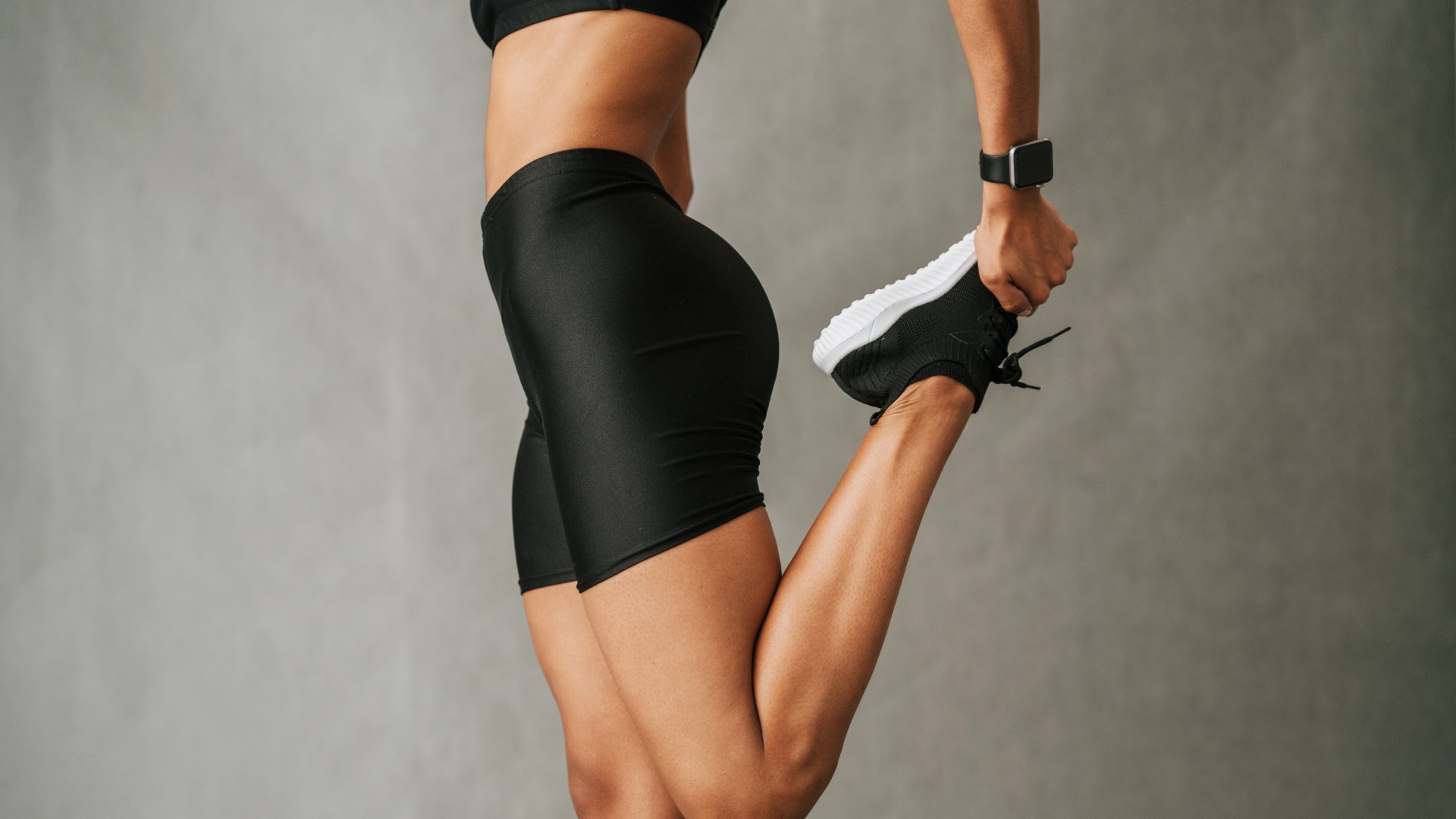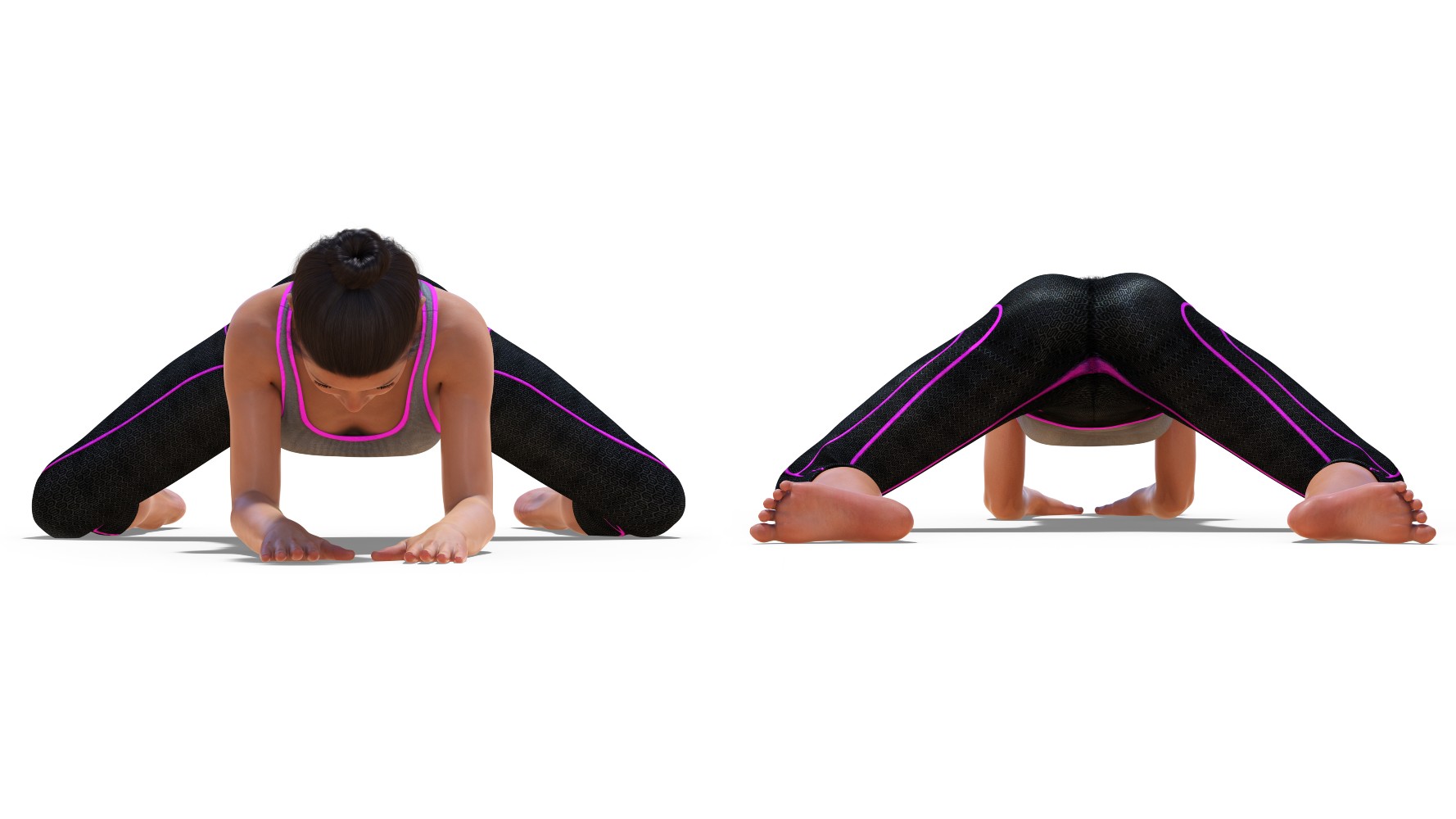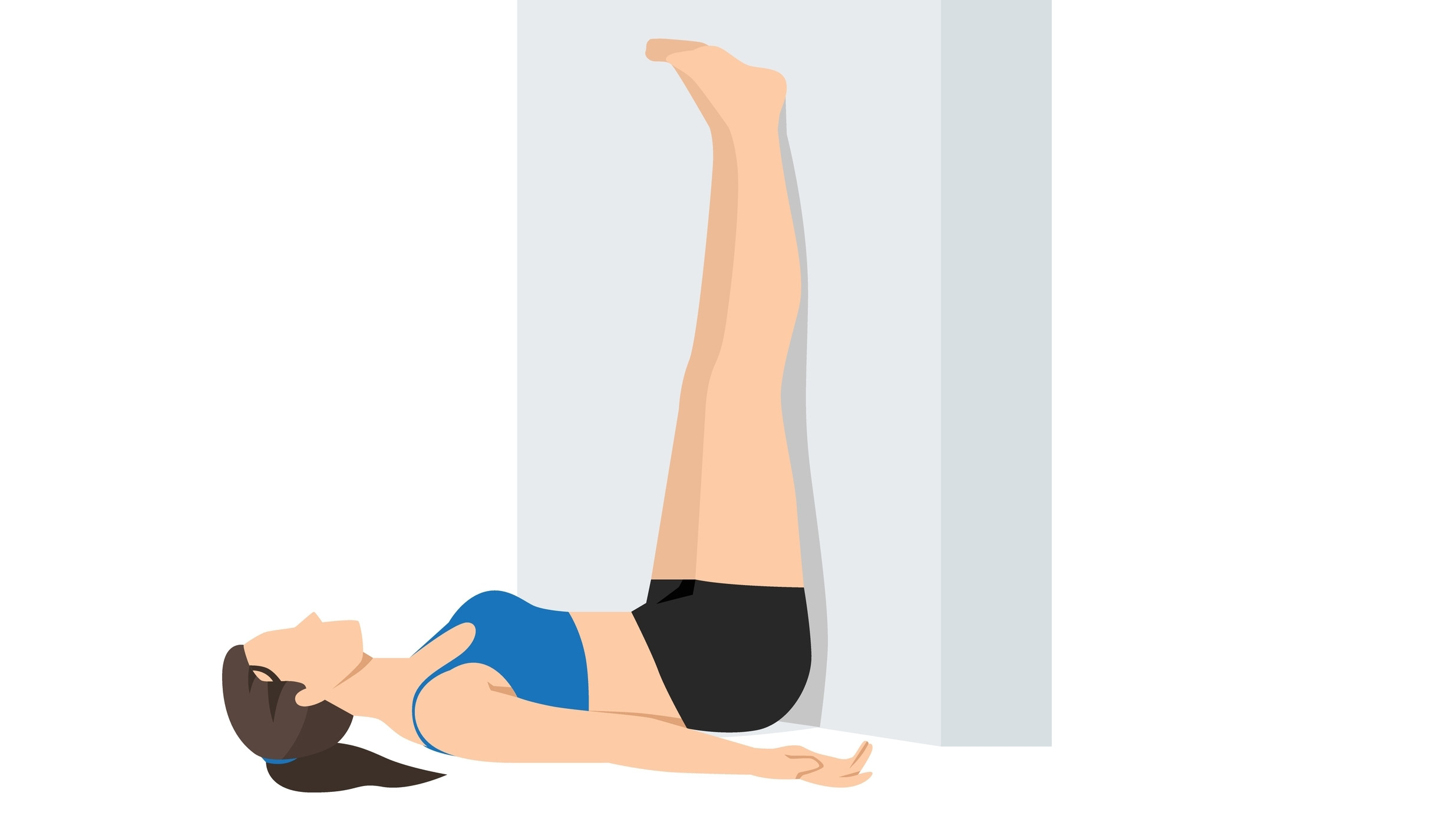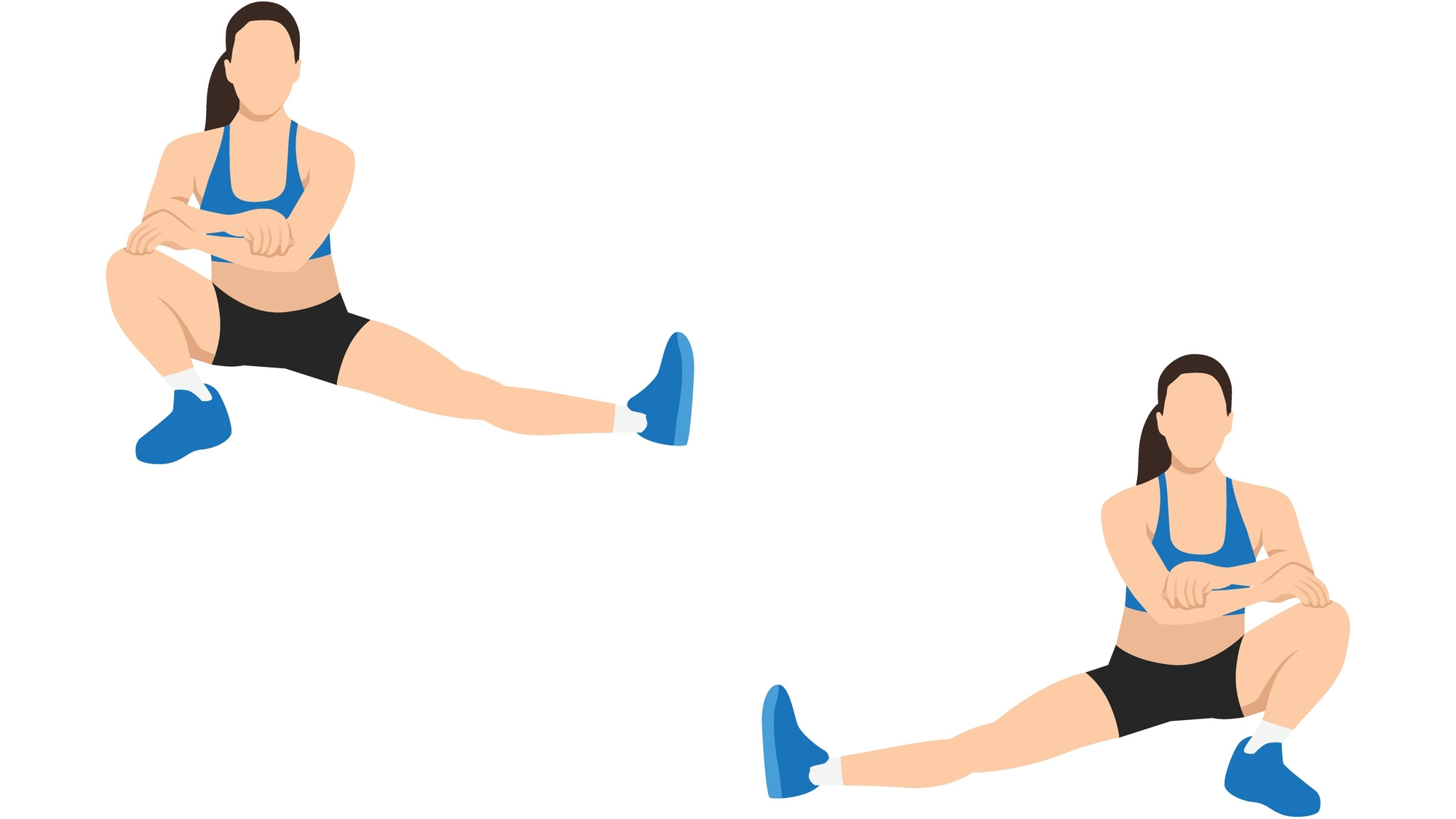
A quick stretching routine could help ease tension in your hamstrings and hips to counteract the negative impact of sitting down all day — and you only need one of the best yoga mats to do it.
I teach 30-minute stretching routines every week and have developed a bank of go-to exercises for strengthening your hamstrings and hips. Performing these three lower body exercises at least several times a week could help release lower body tension and improve posture and overall flexibility.
Best of all, you can scale them to be suitable for beginners or increase the intensity using some of the options I provide below, based on my experiences from teaching.

If you’re currently suffering from an injury or returning to exercise following pregnancy or illness, check in with a qualified medical professional before starting any new exercise regime and stop if you experience sharp or persistent pain.
If you have sciatica, we recommend trying some of the best exercises for sciatica, and although these three lower body stretches for beginners shouldn’t aggravate the sciatic nerve, speak with a physiotherapist first if you’re unsure.
Here’s how to do each exercise, why they benefit your body and ways to scale and squeeze the most out of them.
3 lower body stretches for your hips and hamstrings
Weakness and tightness in the glutes, hips, or hamstrings can limit your mobility and range of motion, leading to potential injuries, sport-related or not, and back pain. Give these a try.
1. Frog pose

I spend several minutes on the frog pose exercise every day and cover how to do frog pose in more detail — it’s one of the best exercises for your hips.
Many yoga teachers I’ve spoken to over the years program frog pose to help ease symptoms of sciatica, and the move also stretches out the adductors (muscles that run down the inner thighs) and the lower back.
If you’ve been sitting at your desk all day, the frog can help develop flexibility around your hips, translating to strength-based exercises like lunges, deadlifts, or squats.
How:
- Start on your hands and knees using a comfortable exercise mat beneath you
- Slowly slide your knees outward to the sides of your mat, then do the same with your feet, aligning them with your knees
- Your inner knees and inner sides of your feet should gently hug the mat
- Press through your hands, then slowly shift your hips back toward your heels
- You can stay here or lower both elbows to a yoga block or the floor — whichever is most comfortable. If you can, lower your forehead to rest on the mat. Hold the pose.
Try to close your eyes and breathe in and out through your nose, using the exhale to soften deeper into the stretch. Aim for several minutes without moving. To make the exercise harder, walk your hands away and lower your chest to the floor. To reduce intensity, draw your heels closer to each other.
2. Wall hamstring stretch

You’ll need a wall or doorframe for this exercise. Support your lower back on your exercise mat to help keep your spine neutral. Keep a soft bend in your knees if you have tight hamstrings, and flex your feet so that your toes point toward you.
How:
- Position your mat on the floor against the wall, then lay facing the wall
- Begin walking your feet up the wall until your legs are vertical — your bum should be as close to the wall as possible and your legs straight with feet flexed
- Gently tilt your pelvis toward you to flatten your lower back to the floor.
To make the exercise harder and achieve a deeper stretch, use a door frame that allows you to position one leg against the frame and extend the other leg away through the door. Remember to switch sides.
You can double-wrap one of the best resistance bands around your feet and gently pull the band toward you to deepen the stretch. Hold for several minutes, breathing in and out through your nose.
3. Cossack squat

The Cossack squat is a side lunge that helps develop flexibility in the hips, knees and ankles and builds lower body strength and power, targeting the quads, outer glutes (gluteus medius), hamstrings, adductors (inner thighs), core and lower back. It’s also a deep hip opener that can help you find better posture during strength exercises like squats and lunges, helping you to sit deeper into position without compromising your back.
How:
- Stand with your legs wide and brace your stomach. Extend your arms away from you or bring your hands to your hips
- Bend your right knee and lower to your right side into a lunge while straightening your left leg
- Lift your left toes toward the ceiling, externally rotating your left hip
- Lift your chest, keep your back straight and sit down as far as you can into the squat, firmly planting down through your right heel
- Pause, then push through your right heel to stand and move straight over to the other side.
Benefits of the best hamstring stretches
The three exercises work well together as a routine and shouldn’t take longer than 10 minutes. Cossack squats work well as a warm-up exercise before loading your squats, deadlifts, or lunges, but static stretches like frog pose and wall stretches are best for cool-downs.
To get the most out of each stretch, hold for at least 30 seconds and perform several rounds as part of a stretching routine, or use them as standalone exercises for several minutes first thing in the morning or evening before bedtime. Avoid holding a stretch for any less than 15-30 seconds as your body will need a moment to adjust to the exercise.
Strength and flexibility exercises are the best way to relieve tight muscles. Tight hamstrings and glutes in particular can inhibit pelvic mobility, placing more pressure on the lower back, impacting posture and increasing the risk of injury during athletic performance.
Plus, some studies (like this by the Journal of Sports Science and Medicine) suggest that regular dynamic stretching (with movement, like the Cossack squat) increases flexibility and reduces stiffness over time.
More from Tom's Guide
More ways to stretch with Tom's Guide.







